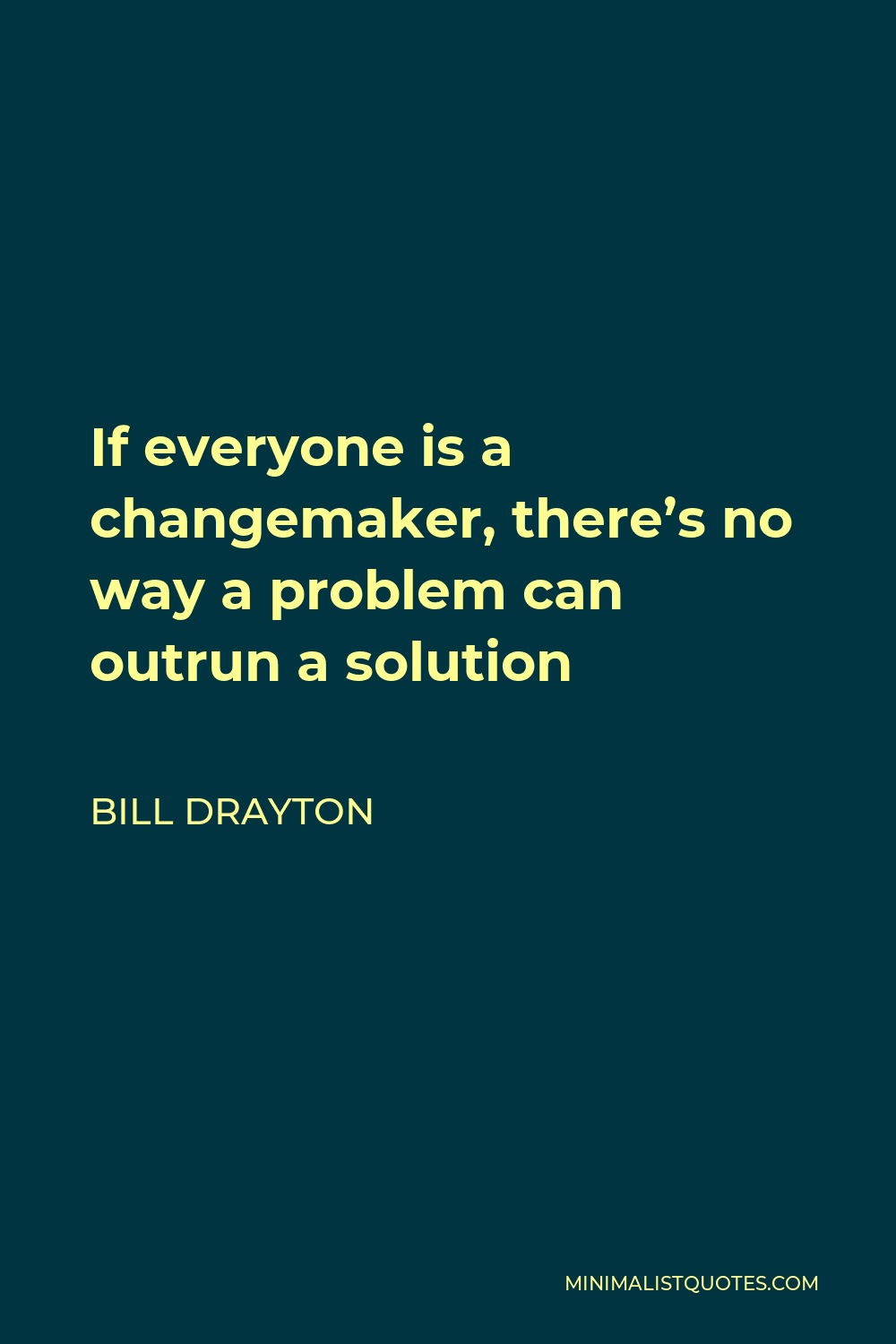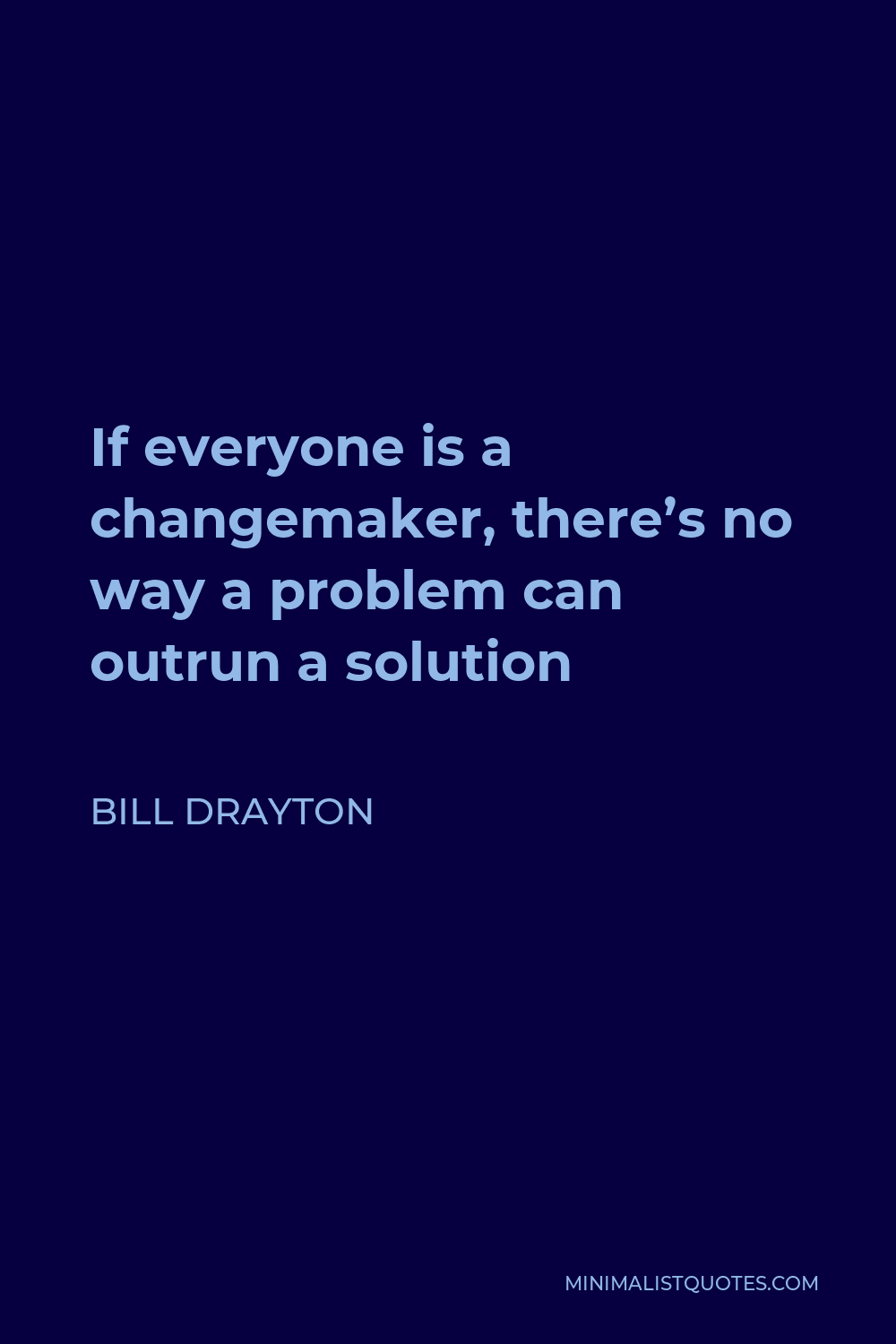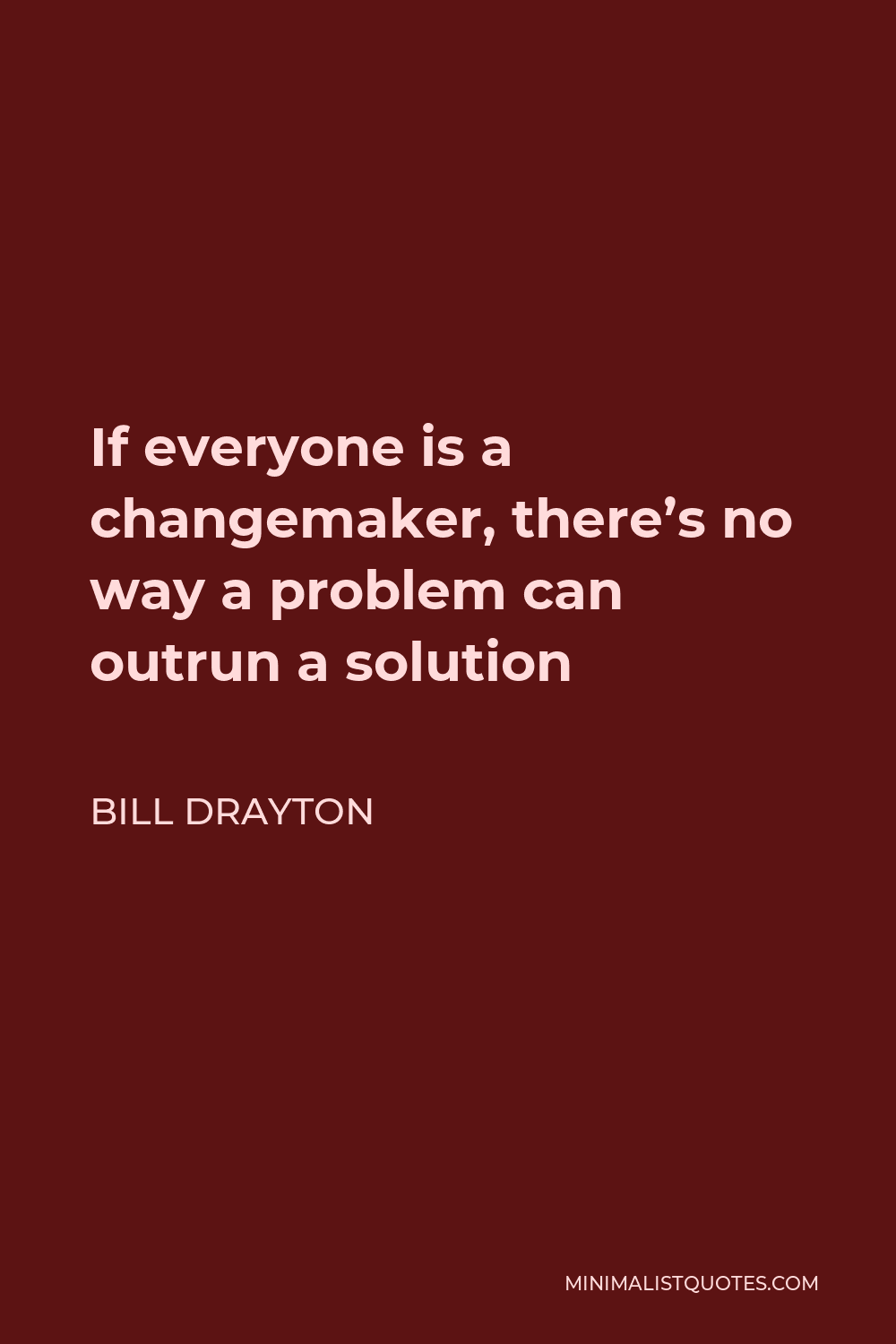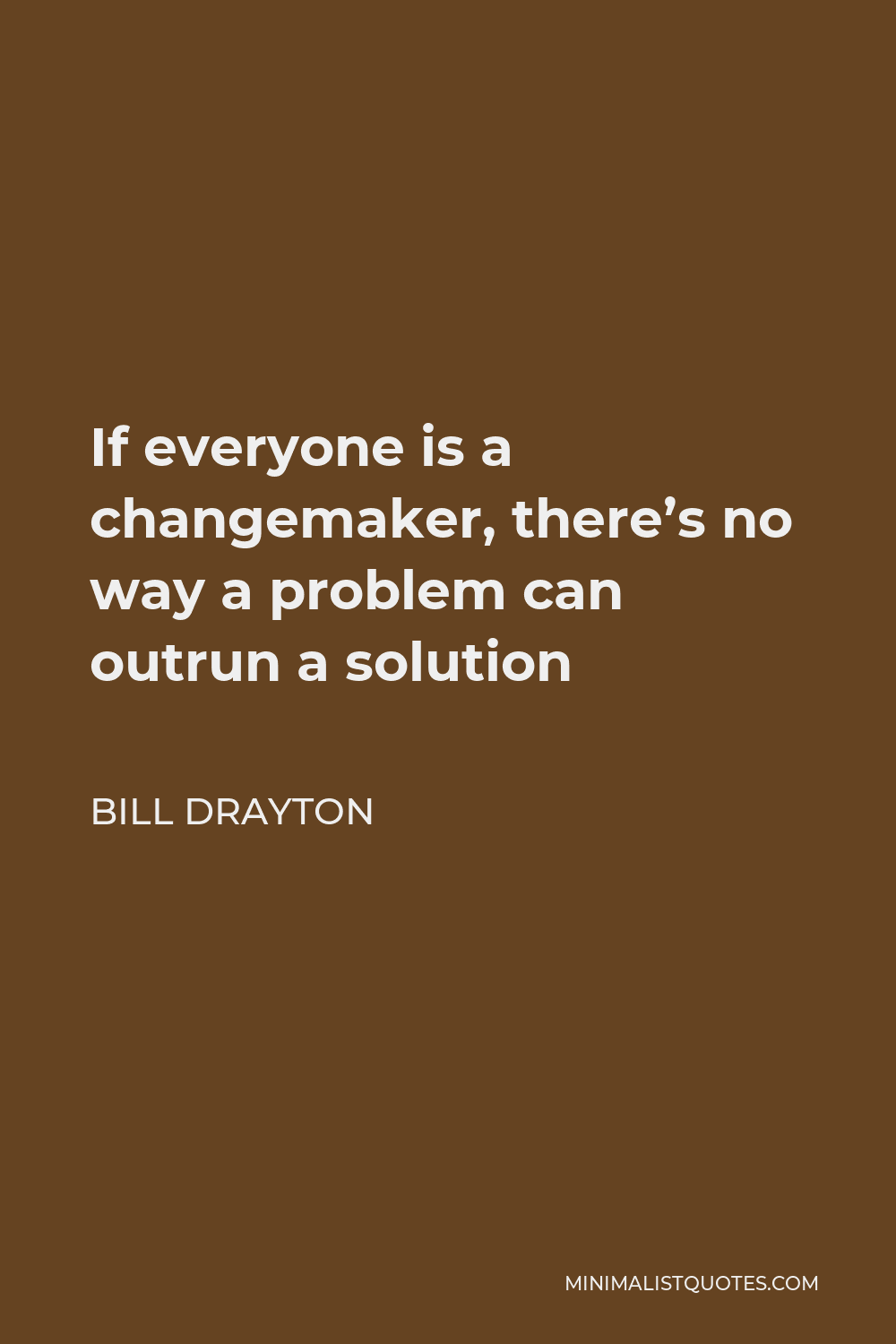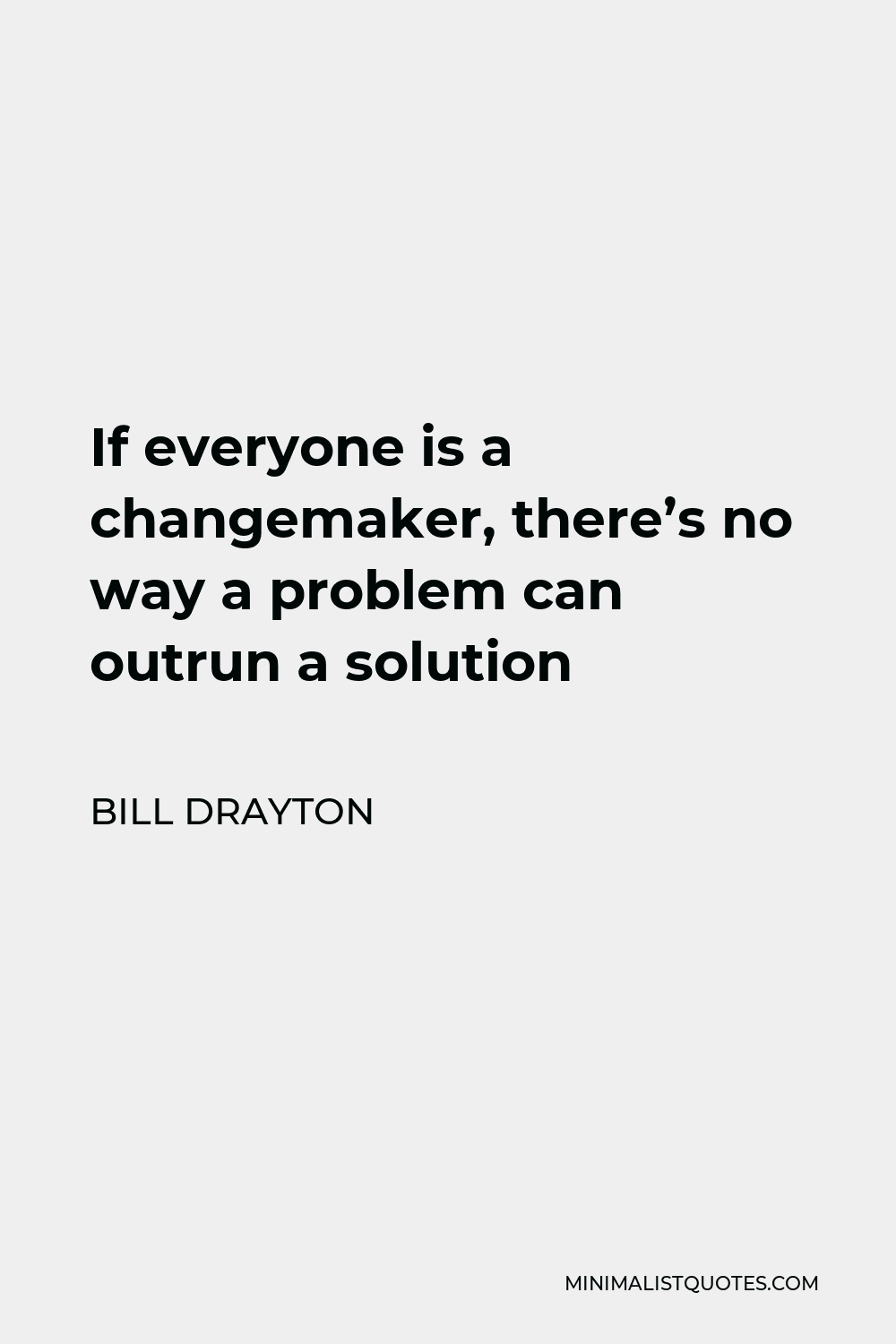To break the mental chains that make us small because everyone tells us we cannot.
BILL DRAYTONIf everyone is a changemaker, there’s no way a problem can outrun a solution
More Bill Drayton Quotes
-





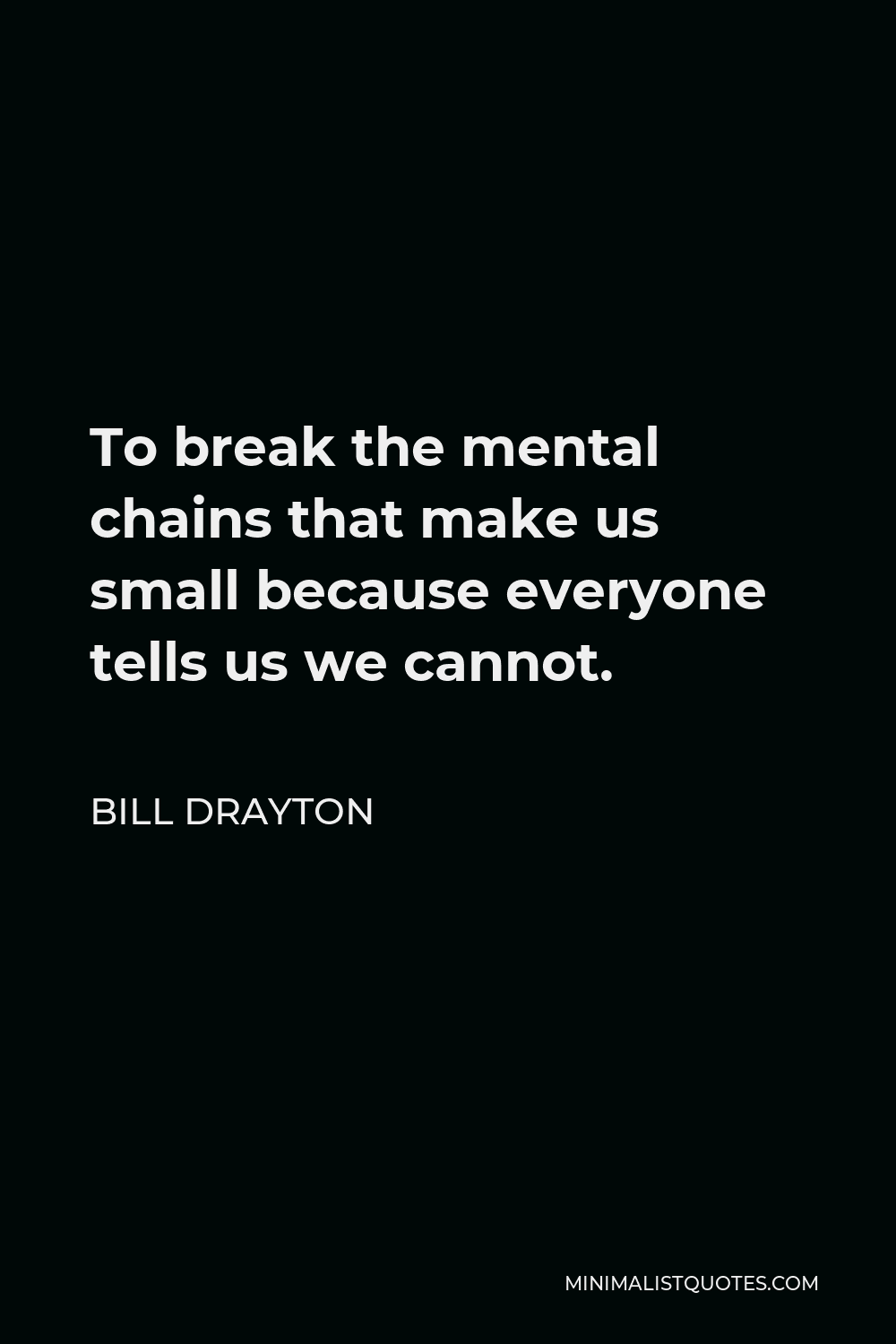
-





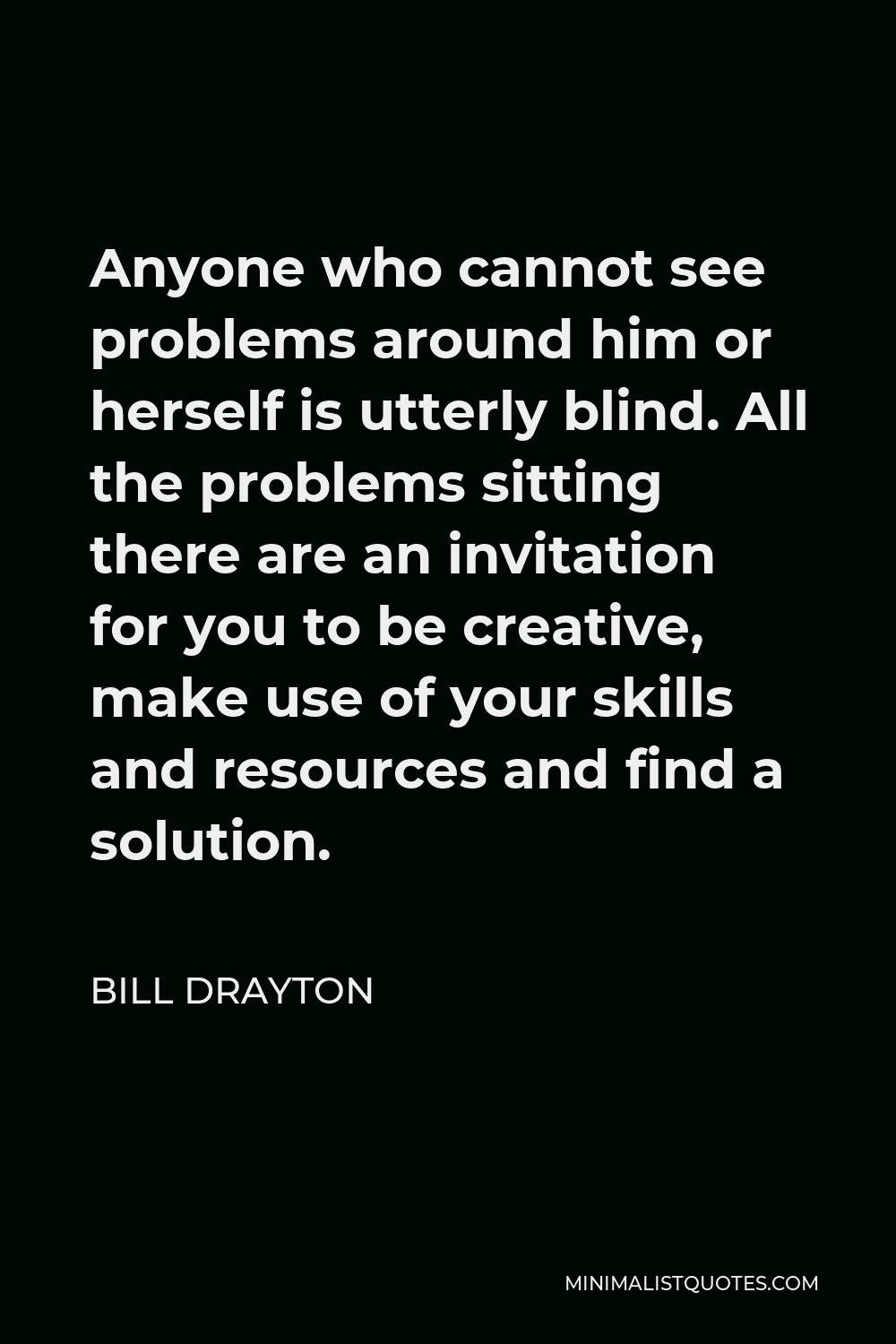
Anyone who cannot see problems around him or herself is utterly blind. All the problems sitting there are an invitation for you to be creative, make use of your skills and resources and find a solution.
BILL DRAYTON -





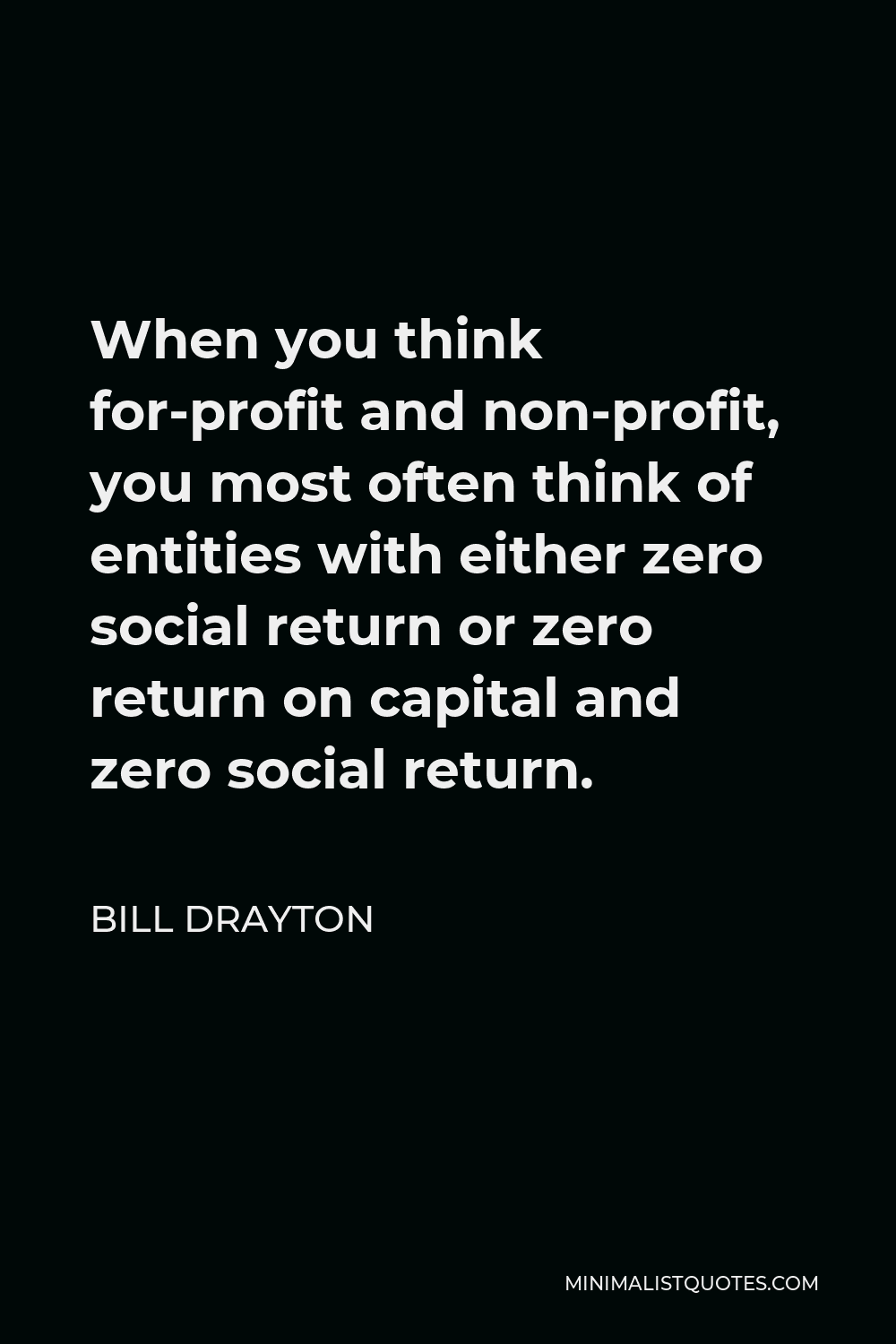
When you think for-profit and non-profit, you most often think of entities with either zero social return or zero return on capital and zero social return.
BILL DRAYTON -





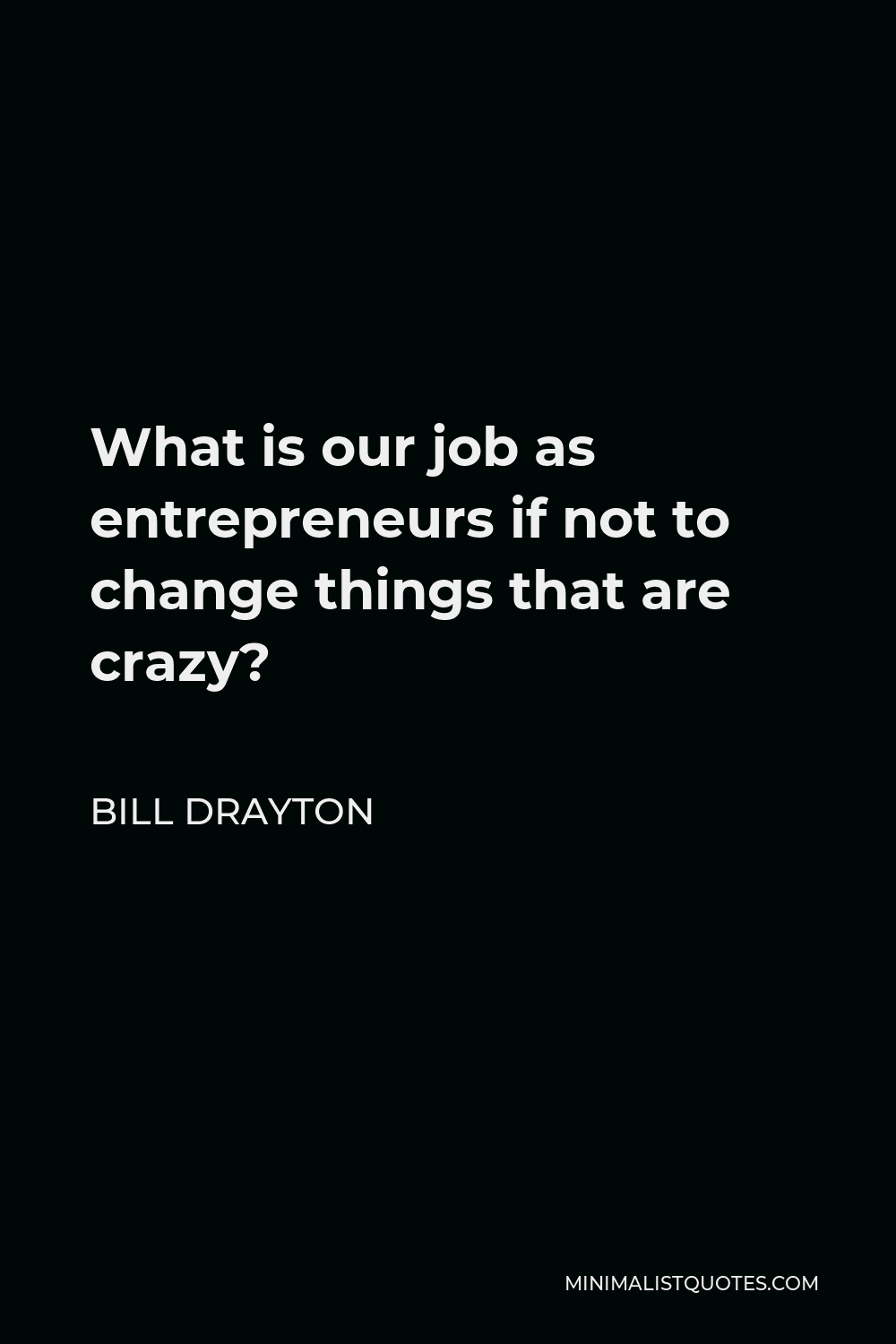
What is our job as entrepreneurs if not to change things that are crazy?
BILL DRAYTON -






Public service and respect for ideas is a recurrent theme in both the American and Australian sides of my family.
BILL DRAYTON -





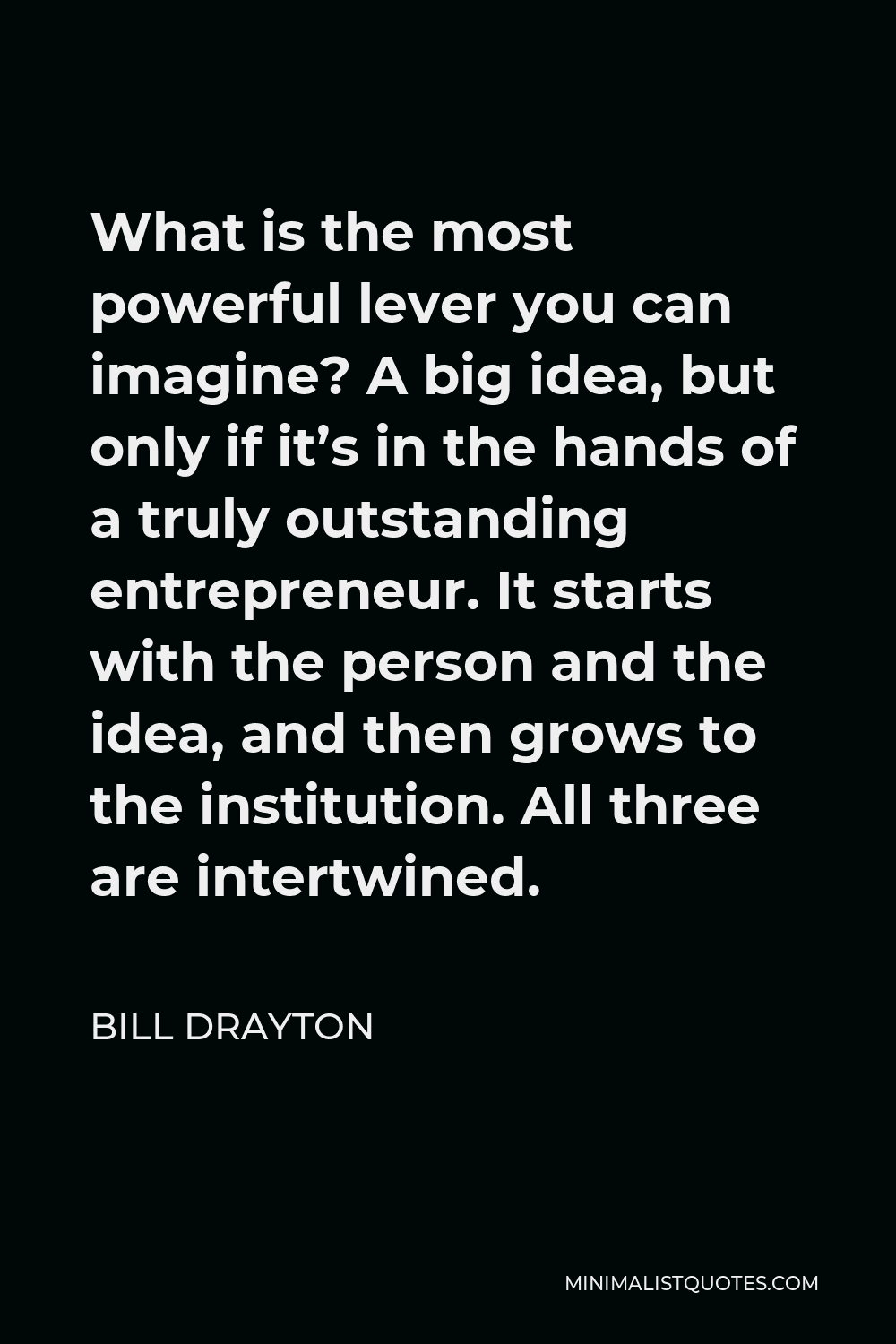
What is the most powerful lever you can imagine? A big idea, but only if it’s in the hands of a truly outstanding entrepreneur. It starts with the person and the idea, and then grows to the institution. All three are intertwined.
BILL DRAYTON -





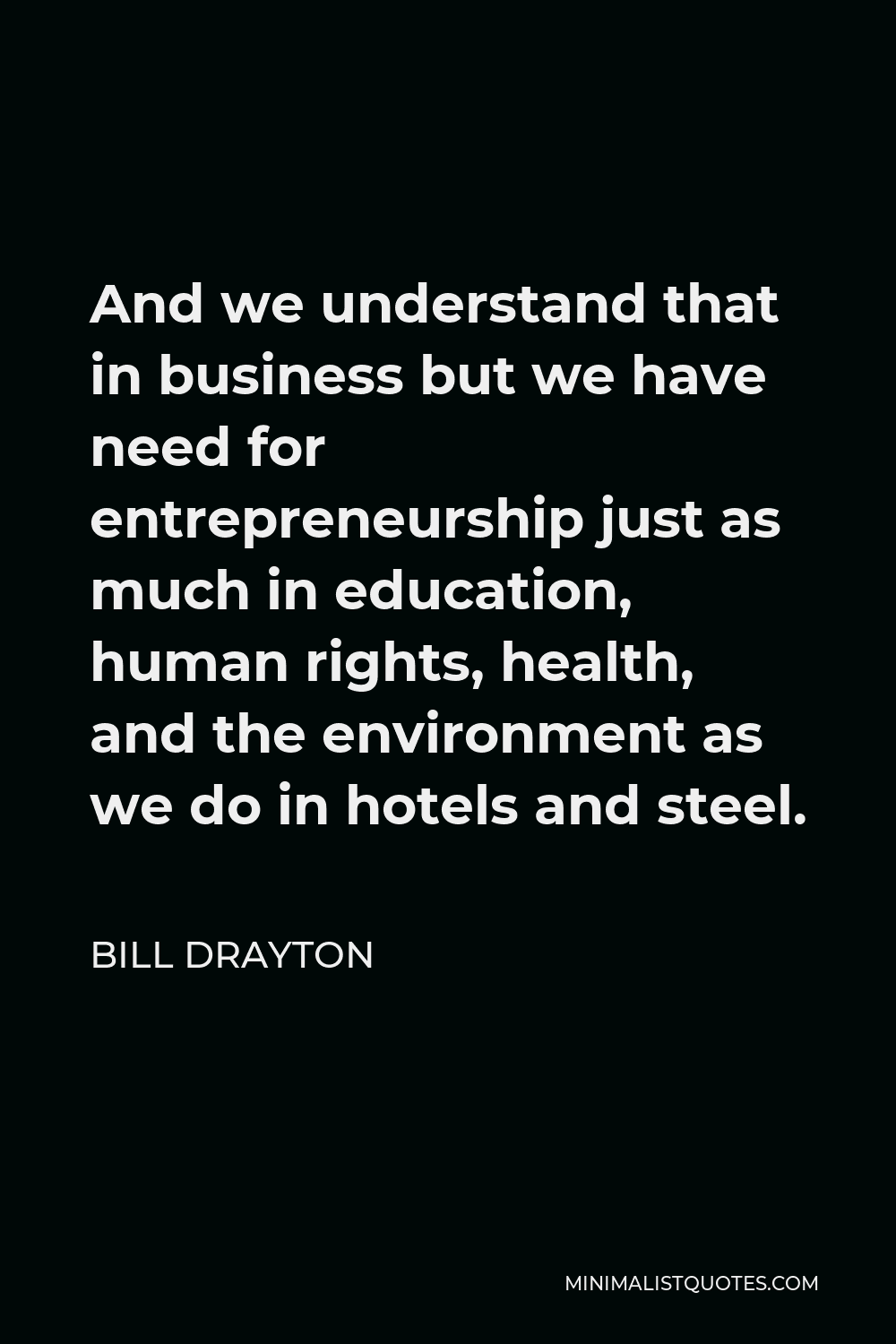
And we understand that in business but we have need for entrepreneurship just as much in education, human rights, health, and the environment as we do in hotels and steel.
BILL DRAYTON -





![Bill Drayton Quote - The most critical variable [to becoming a change-maker] is one’s willingness to give oneself permission.](https://minimalistquotes.com/images/the-most-critical-variable-to-becoming-a-change-ma.jpg)
The most critical variable [to becoming a change-maker] is one’s willingness to give oneself permission.
BILL DRAYTON -





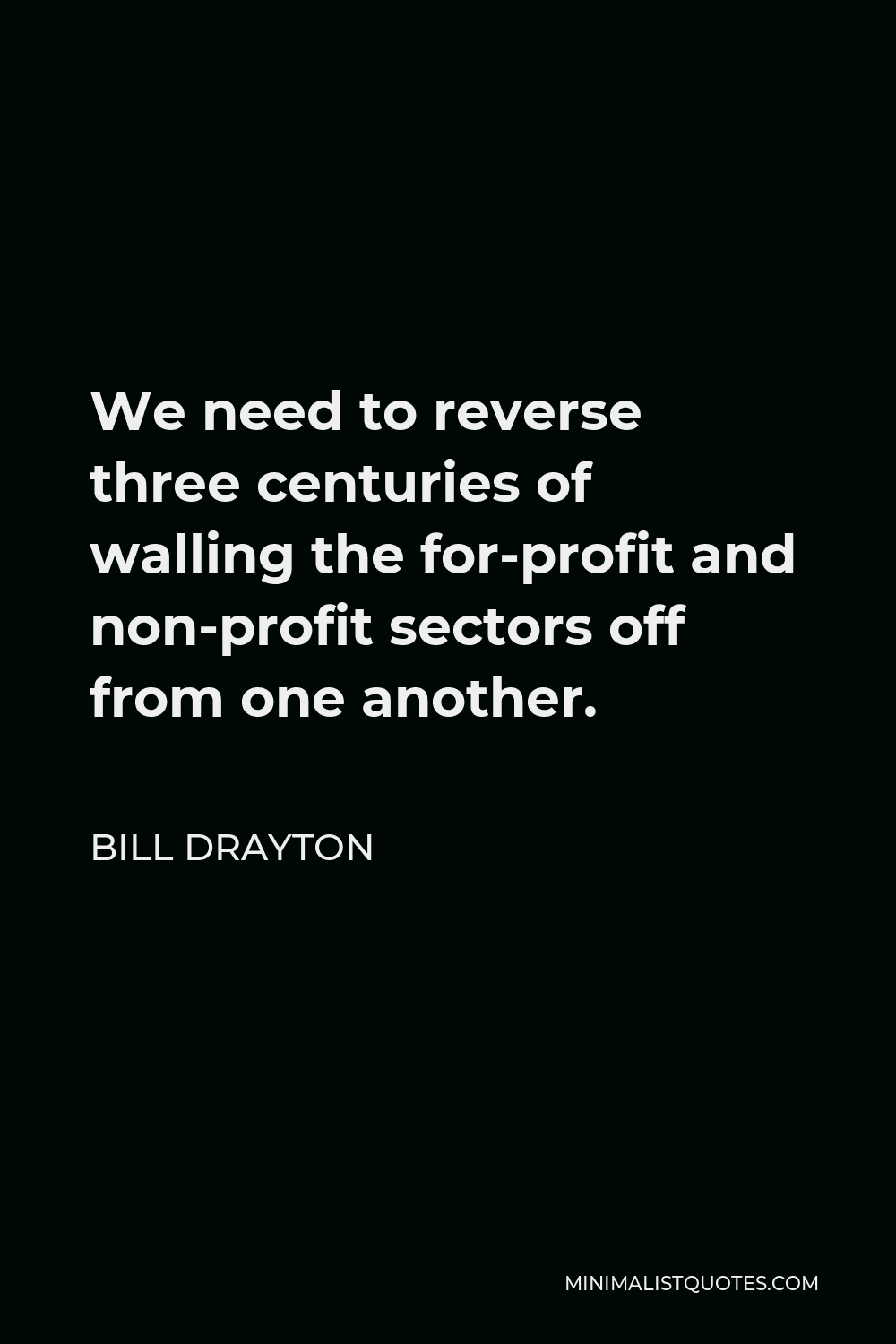
We need to reverse three centuries of walling the for-profit and non-profit sectors off from one another.
BILL DRAYTON -





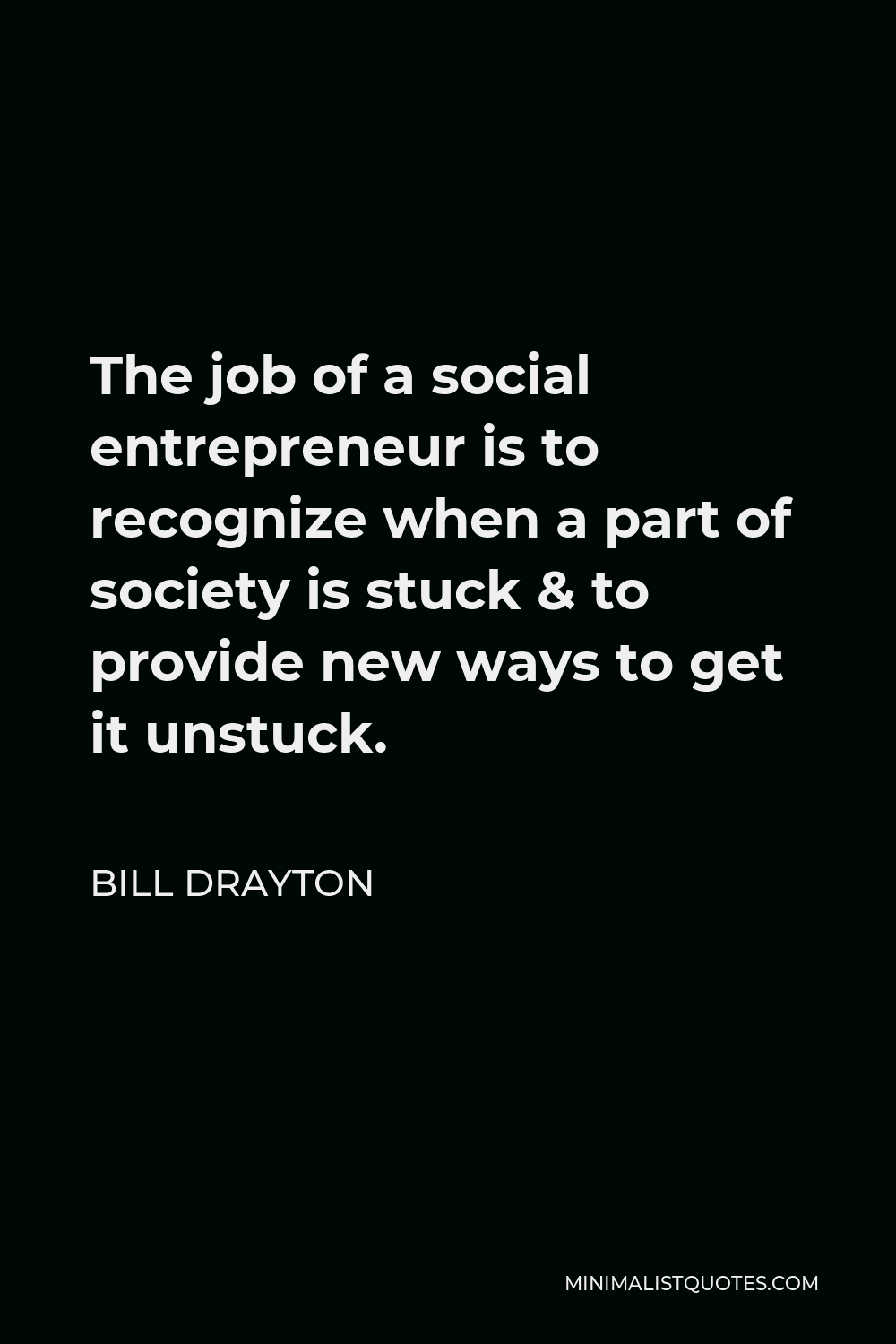
The job of a social entrepreneur is to recognize when a part of society is stuck & to provide new ways to get it unstuck.
BILL DRAYTON -





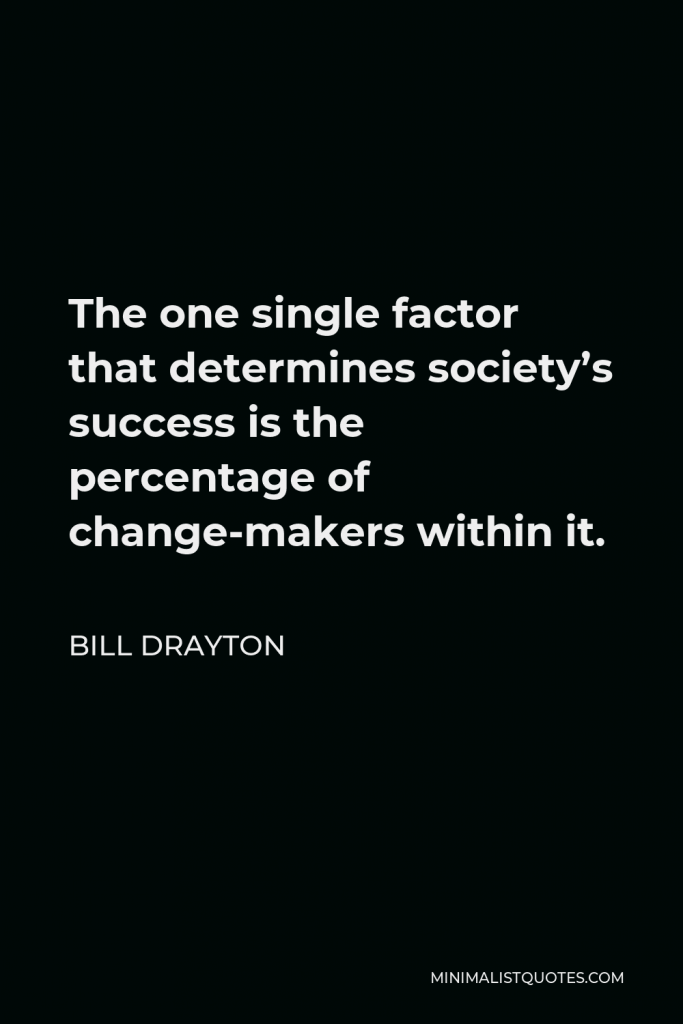

The one single factor that determines society’s success is the percentage of change-makers within it.
BILL DRAYTON -





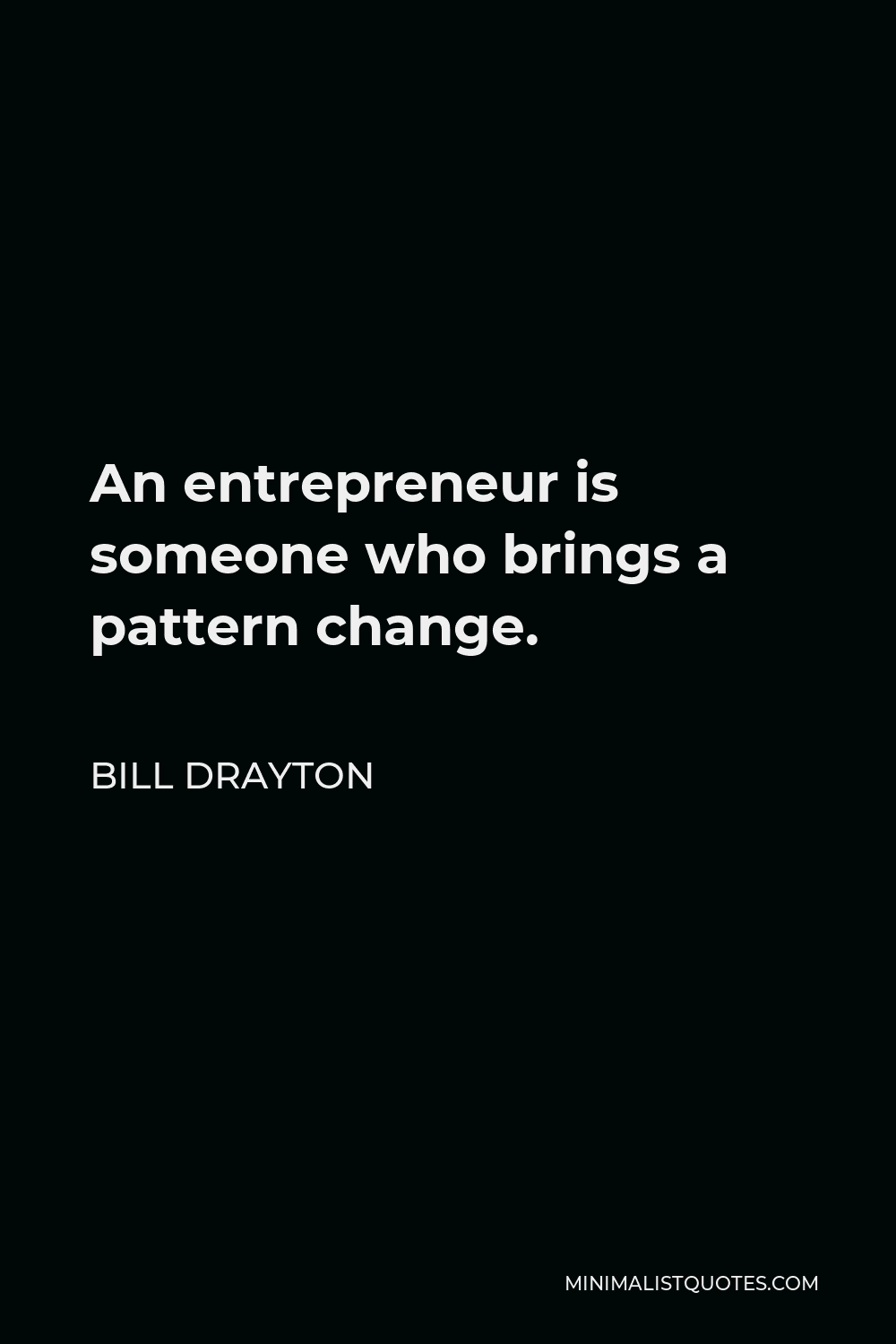
An entrepreneur is someone who brings a pattern change.
BILL DRAYTON -





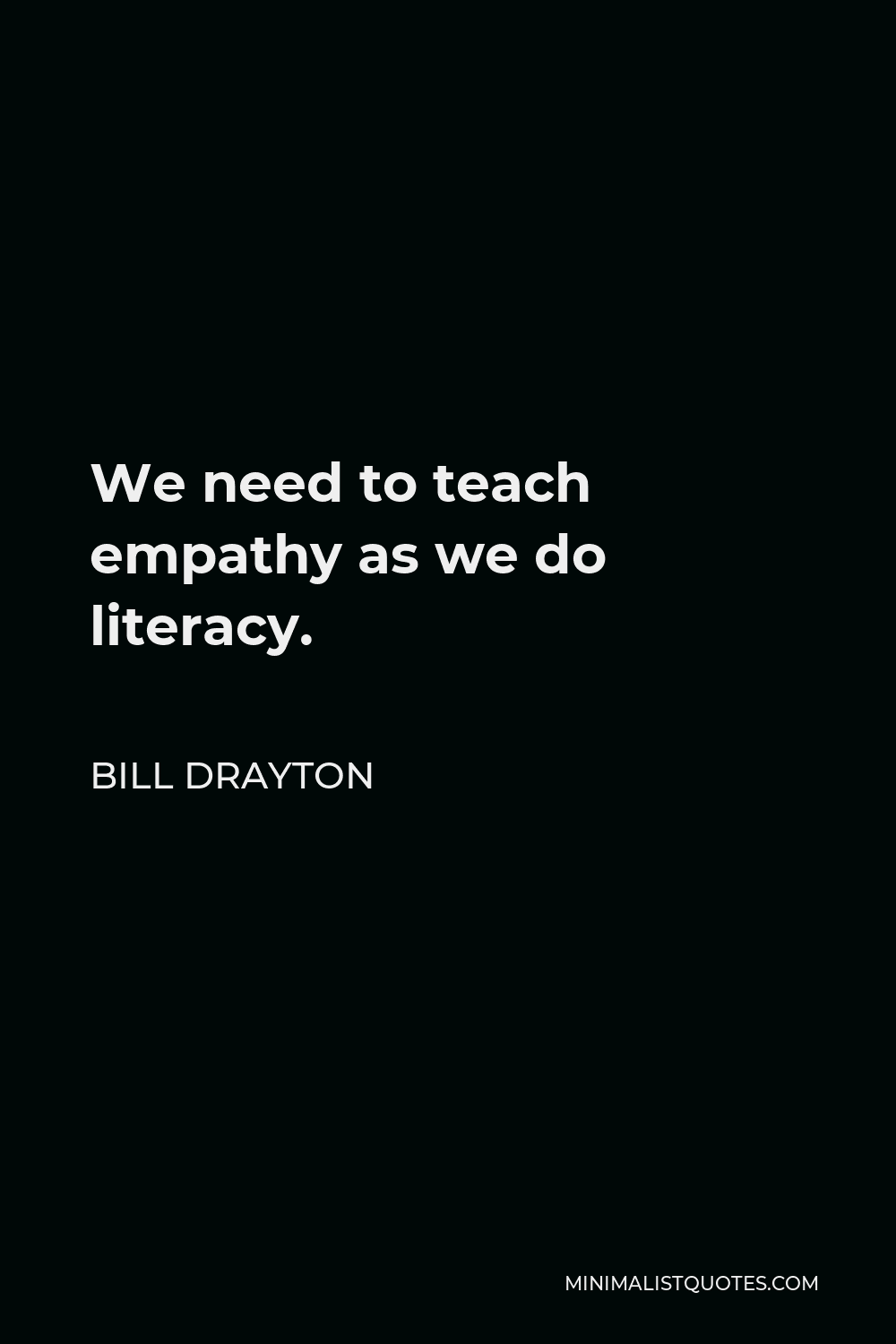
We need to teach empathy as we do literacy.
BILL DRAYTON -





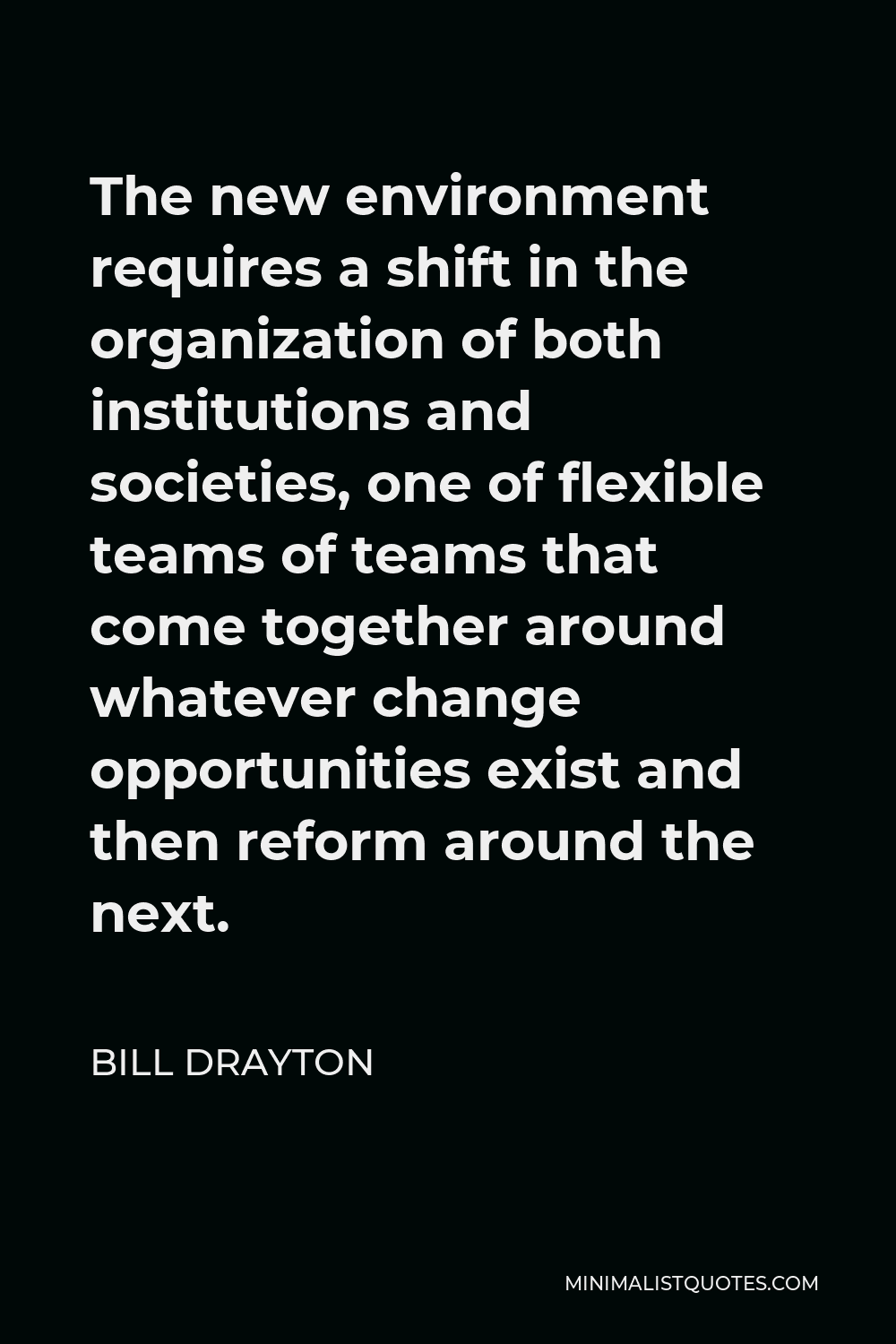
The new environment requires a shift in the organization of both institutions and societies, one of flexible teams of teams that come together around whatever change opportunities exist and then reform around the next.
BILL DRAYTON -





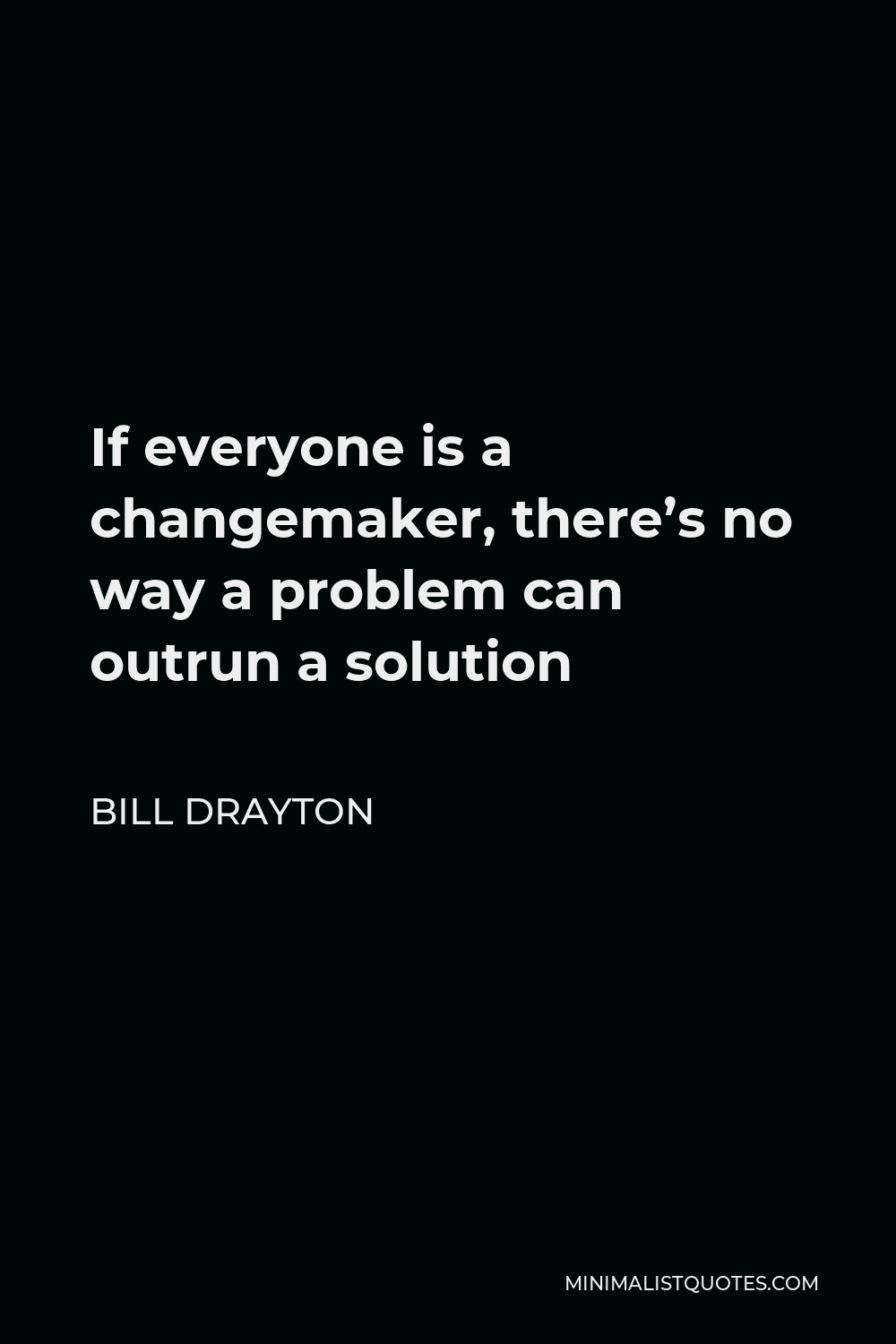
If everyone is a changemaker, there’s no way a problem can outrun a solution
BILL DRAYTON -





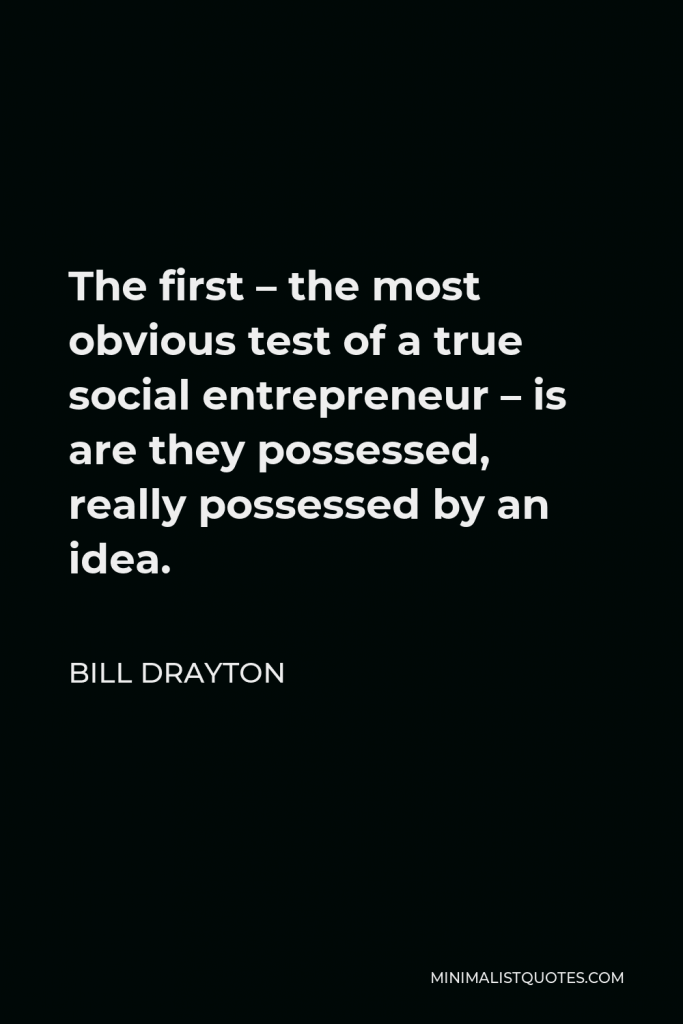

The first – the most obvious test of a true social entrepreneur – is are they possessed, really possessed by an idea.
BILL DRAYTON
